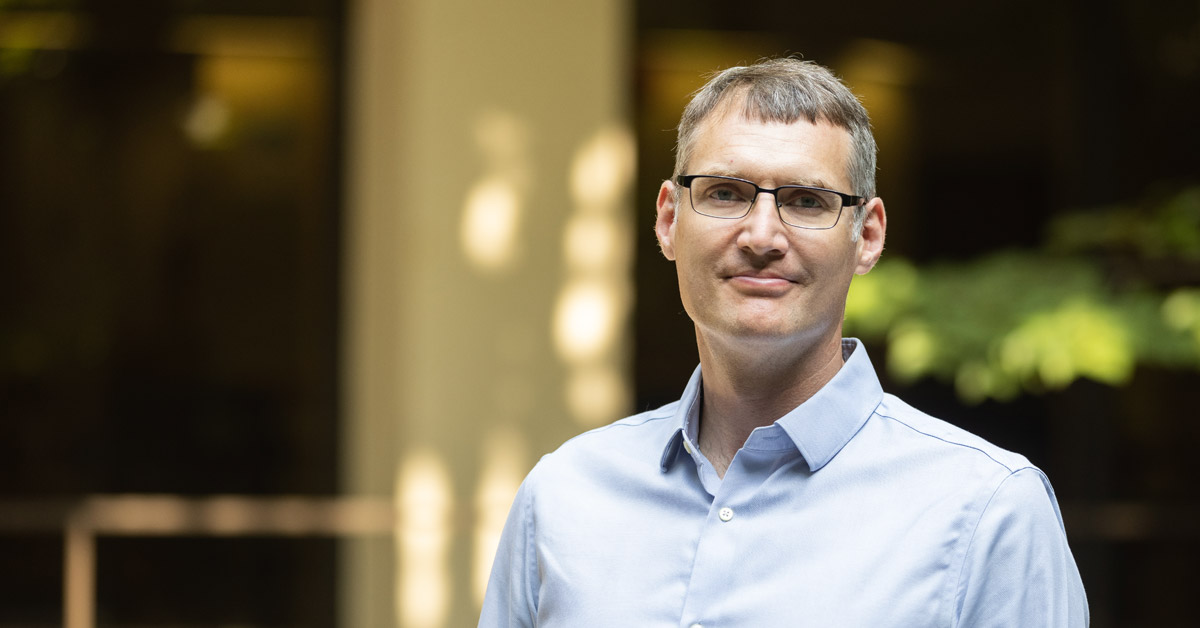Imagine you’ve been on a waiting list for a new liver for years. When you learned you would need an organ transplant, your head was spinning. You were sent to a transplant center, where you underwent a lengthy evaluation process to determine your eligibility to be placed on the waiting list for a new liver.
Once you were approved for the list, you were given a brochure and shown a brief video outlining what you needed to know: the average wait time, the process for being matched with a donor, and the factors you’ll need to weigh in order to decide whether to accept an offer when and if one comes through. You were stressed out, and it was a lot to absorb. Then you were sent home to wait. And wait some more.
Three and a half years later, your phone rings in the middle of the night. It’s your transplant center, calling to offer you a liver! Finally, the moment you’ve been waiting for. But wait — the nurse coordinator on the other end of the line is explaining that the organ you’re being offered came from someone who died of a drug overdose, although test results don’t show any signs of infection.
You knew that donor offers come in a range of profiles, and you’d been hoping for one considered “high quality.” But if you don’t take this one, you could very well die before receiving another. You’re trying to remember everything you learned in that brief video three and a half years ago, but the details are fuzzy, and now you have so many questions you don’t know where to start.
You know that if you decide to accept this liver, you’ll have to immediately travel to the transplant center for surgery and be prepared to stay nearby for several weeks while you recuperate. You have 30 minutes to make your choice.

“The current process for matching an organ to a patient isn’t very patient-friendly,” says Cory Schaffhausen, PhD, a researcher at Hennepin Healthcare Research Institute, assistant professor at University of Minnesota Medical School, and human-centered design engineer at the Scientific Registry of Transplant Recipients (SRTR), a data registry located at Hennepin Healthcare that analyzes outcomes for organ transplant donors and recipients across the U.S.
He set out to change that in 2020 with his research and design project, Embedding Human-Centered Design and Learning Health System Research in the Transplantation System.
Learning health systems enable rapid innovation
Schaffhausen’s project was supported by the Minnesota Learning Health System Mentored Career Development Program (MN-LHS), a collaboration among the University of Minnesota, Mayo Clinic, Hennepin Healthcare, and six other collaborating clinical sites. The program enables scholars embedded within health systems to provide insights and evidence that can be rapidly implemented to improve both patient outcomes and health system performance.
“It was really exciting to learn about the MN-LHS program because it’s a different way to approach research,” says Schaffhausen. As a junior researcher (with a background in engineering and design) in search of more training, the program’s approach of working with end users to understand and meet their needs in an iterative design process appealed to him.
“When you’re within a system and interacting with all the different stakeholders to learn what they’re doing and what they need, it’s easier to create a solution that the system can sustain than if you’re sitting in a research lab and reading papers,” notes Schaffhausen.
Healthcare is often dominated by large, complex systems that can make it difficult to efficiently implement solutions to issues that arise on a human scale. And the pace of traditional research lags far behind the pace of needed change. The typical “research to action” timeline takes, on average, 17 years. The Learning Health System (LHS) model addresses this problem by embedding researchers into systems and empowering them to identify, explore, and design solutions to problems — all while collecting data to verify whether the solutions work.
Designing a tool to support the organ transplant decision process
Schaffhausen had already been collaborating with the SRTR to improve how information is presented on their website. The patient interviews he conducted in the course of that work led to the realization that providing better support for patient decision-making would add significant value.
With the support of the MN-LHS program, he started the research and design project with a series of focus groups with hepatologists, surgeons, and nurse coordinators who serve as point people for organ transplant recipients, gathering their input on how the current patient education materials could be improved. He then created a simple prototype designed to look like a web page, with the help of a developer and designer funded by the program’s research support funds. Patient focus groups gave feedback on what was helpful or confusing.
With each round of feedback, the team designed a new iteration of the prototype, ultimately creating a working website called the Organ Offer Guide that patients can click through and navigate. It walks users through the whole organ offer process and offers detailed information in an accessible and interactive way. It includes a sample donor offer plan a patient can prepare before receiving an offer, as well as a Practice Offer Tool that lets them practice their decision-making process in advance.
In the project’s final stage, liver transplant candidates will be recruited and the team will collect data on whether the tool helps them feel more confident and prepared to navigate the organ offer process.
So far, the feedback from both patients and practitioners has been quite positive. “It has decreased my anxiety and just kind of organized things in my brain more,” said one focus group patient. Another offered, “I’m terrible at asking questions in-the-moment because my brain kind of freezes up. And so this is good, I like this concept a lot.”
“Now when a patient gets an offer, it may still be a difficult decision for some, but they’ll have had the chance to absorb the information they need while in a less stressful frame of mind,” says Schaffhausen.
By embedding the research and design process into the SRTR system, Schaffhausen achieved institutional buy-in that will ensure the sustainability of the final product. “SRTR might not have agreed to commit to launching the site from day one. They had to see the project evolve and see how patients and clinicians were reacting. Over time, as they got to know the project, it was more realistic for them to support it and make it sustainable,” he says.
Now, SRTR will likely host the Organ Offer Guide on their platform alongside other patient resources, and maintain and update it as information and processes evolve. They also hope to apply insights gleaned from the project to help kidney transplant candidates as well.
Thanks to the Learning Health System model, patient-centered research and design will yield tangible results and reduce barriers to successful outcomes for patients and their loved ones.

